Plant health standards, e-commerce, ePhyto, and international cooperation among key topics at IPPC regional workshops
Posted on Thu, 26 Sep 2024, 11:34
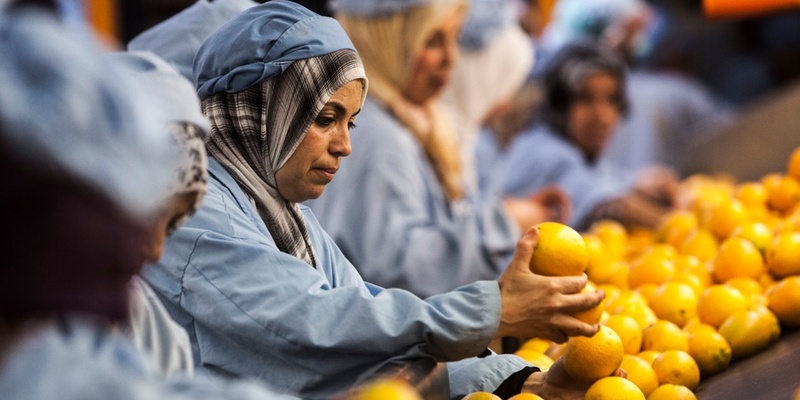
©FAO / Alessandra Benedetti
Rome, 26 September 2024. The annual International Plant Protection Convention (IPPC) Regional workshops held from 5 August to 8 September, concluded with plant health communities in seven regions—Africa, Asia, the Caribbean, Europe and Central Asia, the Near East and North Africa (NENA), Latin America, and the Southwest Pacific, emphasizing their commitment to regional and international cooperation in protecting plants from pests. With the theme “Plant health, safe trade, and digital technology,” they highlighted the importance of phytosanitary standards for plant health and safe trade and advocated for greater awareness and communication on plant health matters and enabled discussions on region-specific phytosanitary issues and solutions. Below are some highlights.
Africa
Participants at the workshop held in Kinshasa, the Democratic Republic of Congo stressed the importance of adopting electronic phytosanitary certification through the IPPC ePhyto Solution. The latter is an online system that allows countries to exchange digital phytosanitary certificates (ePhytos), replacing paper ones. This increases reliability and reduces errors and fraud in the international trade of plants and crops. In Africa, 13 countries are exchanging ePhytos through the IPPC ePhyto Solution, and during the workshop Burundi, Guinea-Bissau, Mauritania, Mozambique, and Sierra Leone expressed interest in joining. Countries also requested support, guidance, and training in the electronic phytosanitary certification process.
Participants were urged to use the IPPC Online Comment System more and engage with political leaders to raise their awareness about the work of national plant protection organizations (NPPOs), especially in developing and implementing international plant health standards to manage plant pests.
“To tackle this continuing expansion of plant diseases, it is, therefore, time to combine our efforts by adopting a set of valid methods and tools that show how prevention, early warning, preparedness, good crisis management and good practices can improve food security and save lives”, said Grégoire Mutshayi, Democratic Republic of Congo’s Minister of State for Agriculture and Food Security, who presided over the opening and closing of the workshop.
From 21 sub-Saharan African countries, 73 participants attended the workshop, including plant health specialists from national plant protection organizations (NPPOs), the IPPC Secretariat, international observers, national stakeholders involved in raising awareness on antimicrobials resistance, working with farmers, advocating against overuse of pesticides, as well as Médecins Du Monde (MDM), an international organization promoting One Health and controlled use of pesticides in horticulture.
The workshop concluded with a tour of DAIPN- Centre des metiers to observe the management of two plant pests, Tuta absoluta and fruit flies in horticultural farms.
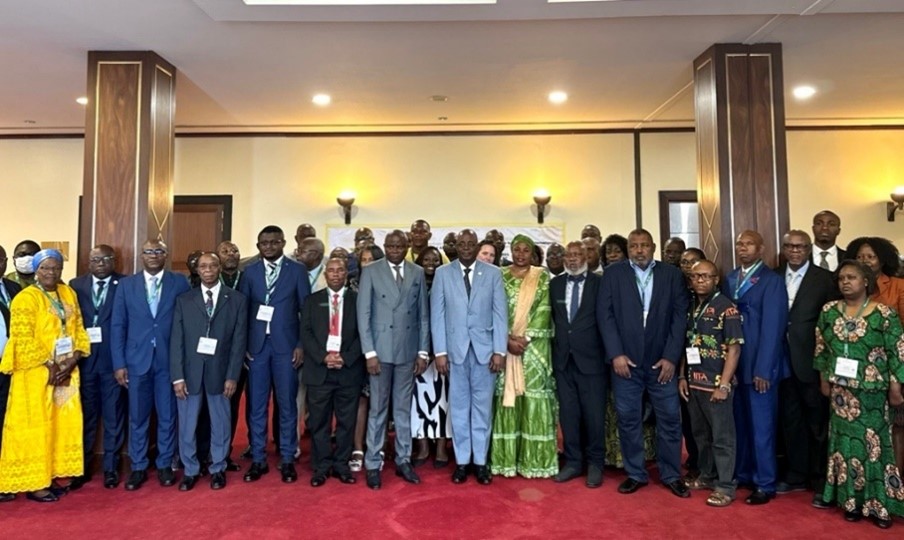
Asia
Like in Africa, participants of the IPPC Regional workshop in Asia stressed the importance of using ePhytos in agricultural trade and the urgency of a sustainable funding mechanism for the IPPC ePhyto Solution. They encouraged the IPPC Secretariat to follow up on voluntary country contributions to e-Phyto closely.
Participants also discussed opportunities for sharing the knowledge gained from the regional workshop in Asia with other regions and tasked the IPPC Secretariat to urgently pursue the development of specific guidance information on fruit fly species and their life cycle in different climates, to support the revised ISPM 26.
Held in Korea, the workshop was organized by the Asia-Pacific Plant Protection Commission (APPPC), hosted by the Animal and Plant Quarantine Agency (APQA)- NPPO of the Republic of Korea and the IPPC Secretariat. It was attended by 33 participants, including representatives from 17 countries- Australia, Bangladesh, Bhutan, Cambodia, China, Indonesia, Japan, Laos, Malaysia, Nepal, New Zealand, Philippines, Republic of Korea, Sri Lanka, Thailand, Timor-Leste and Viet Nam as well as members of the CPM Bureau, Standards committee (SC), and Implementation and capacity development committee (IC).
The workshop also involved a field trip to the Forest Technology and Management Research Centre and Korea National Arboretum to see how science and technology research help to maintain South Korea’s forests.
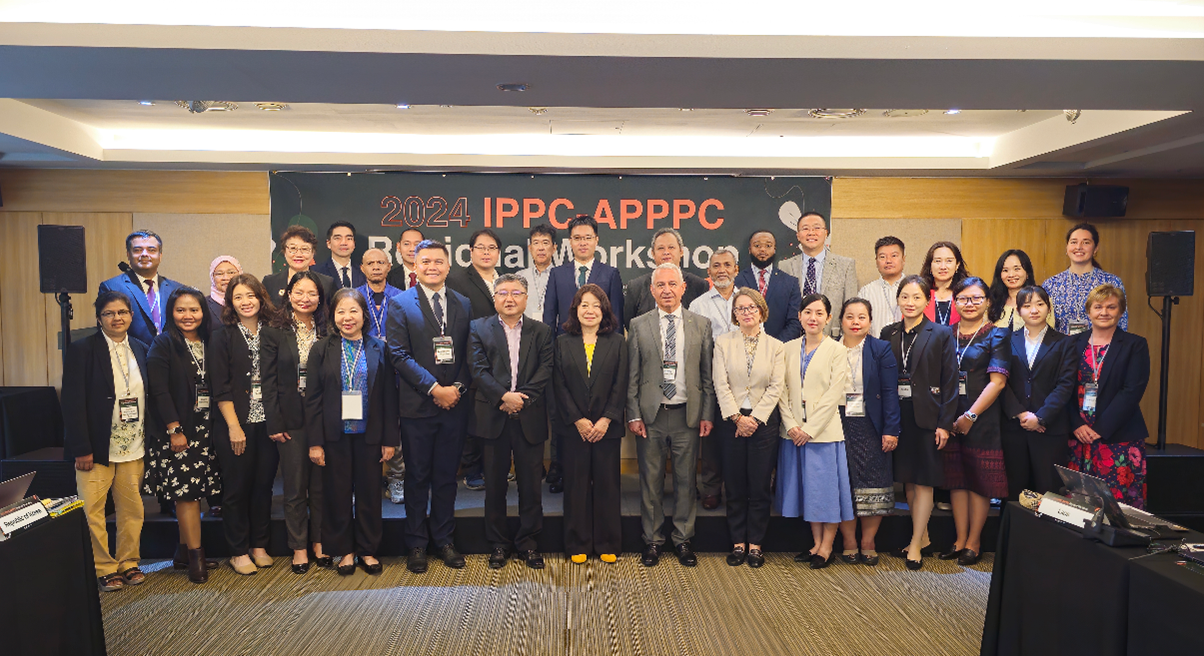
©APQA
Caribbean region
The IPPC regional workshop for the Caribbean, hosted by the Republic of Trinidad and Tobago, was held jointly with the 17th Annual meeting of the Caribbean Plant Health Directors Forum (CPHD). The workshop had 17 participants, including plant health experts and representatives from 13 IPPC Contracting Parties, the Caribbean Community (CARICOM), United States Department of Agriculture (USDA), the Inter-American Institute for Cooperation on Agriculture (IICA) Delegation in Trinidad and Tobago and the Embassy of the United States of America in Trinidad and Tobago.
Participants agreed on the pest risks associated with online trade and praised the IPPC for initiating an e-commerce survey. This survey aims to gather data on how IPPC Contracting Parties are following the Commission on Phytosanitary Measures (CPM) recommendations on internet trade. Survey data will help monitor global phytosanitary e-commerce strategies and could assist small island states in managing pest risks linked to increasing e-commerce.
Participants listened to presentations on research work on pests of interest in the region, capacity-building programmes, and One Health initiatives. They urged the IPPC to organize a webinar on the standard-setting process, for new NPPO officers.
“The convergence of our regional plant health leaders and international experts underscores the critical importance of collaboration in addressing the challenges we face in plant protection”, said Ian Mohammed, Director of Research, speaking on behalf of Honourable Kazim Hosein, Minister of Agriculture, Land and Fisheries.
“Our Caribbean region, rich in biodiversity and cultural heritage stands as a testament to the intricate balance between human activity and the environment. The threats posed by plant pests and diseases have never been more pressing and our response must be both proactive and unified”, he added.
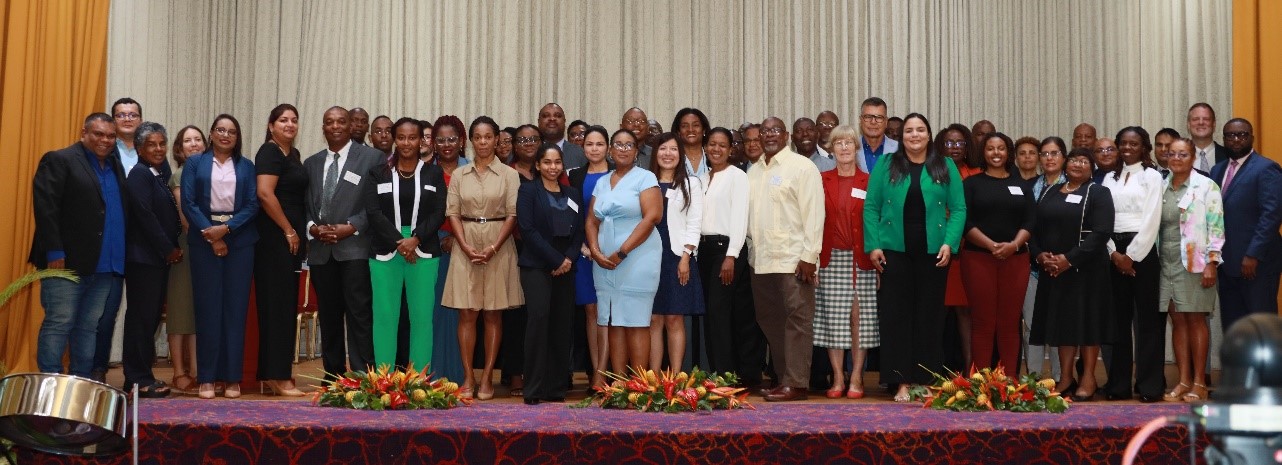
© United States Embassy
Europe and Central Asia
The workshop was an opportunity to discuss international plant health standards and the prevailing phytosanitary situation in countries of the Europe and Central Asia region. Participants at the workshop held in Yerevan, Republic of Armenia, raised the importance of commemorating the International Day of Plant Health, increasing public awareness about plant protection, sharing country experiences, and finding regional solutions to common pest problems.
The workshop was organized by the IPPC Secretariat, the European and Mediterranean Plant Protection Organization (EPPO), the FAO Regional Office for Europe and Central Asia, FAO Representation in Armenia, and the Food Safety Inspection Body - NPPO of the Republic of Armenia. It had 33 participants including two observers from the United States Department of Agriculture (USDA) and plant health specialists from 20 IPPC Contracting Parties.
Gevorg Papoyan, Minister of Economy in Armenia, emphasized the importance of international cooperation in controlling pests of plants and plant products by preventing their international spread and their introduction into endangered areas. He underlined the importance of good phytosanitary conditions and effective implementation of plant protection measures, particularly for food safety and security in Armenia.
Armen Hayrapetyan, Head of the NPPO of Armenia, highlighted the value of applying international plant health standards, especially since plant protection is central to human health, national economic progress. He also emphasized the importance of knowledge sharing through events like the IPPC Regional workshop and international cooperation and development for sustainable agriculture.
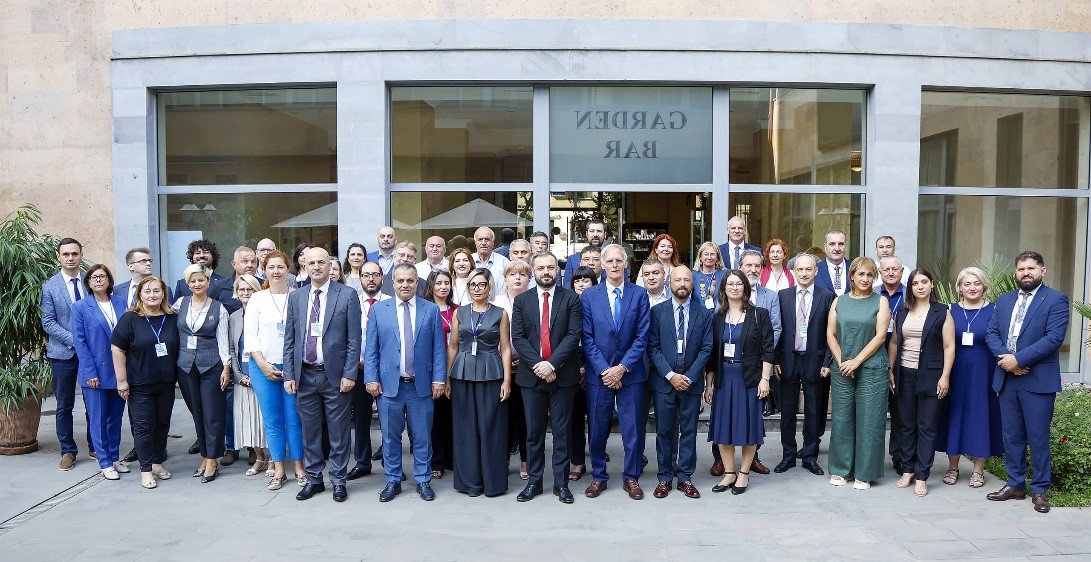
©Armenia NPPO
Latin America
Nicaragua hosted the IPPC regional workshop for Latin America, in Managua. Participants included plant health specialists from 20 Latin American countries, as well as the IPPC Secretariat, FAO Mesoamerica, the Institute of Agricultural Protection and Health (IPSA)/ NPPO of Nicaragua, Inter-American Cooperation Institute on Agriculture (IICA) and RPPOs- Organismo Internacional Regional de Sanidad Agropecuaria (OIRSA), Comité de Sanidad Vegetal del Cono Sur (COSAVE) and Comunidad Andina (CAN).
Discussions included commenting on the draft plant health standards, implementation of new phytosanitary guides, the importance of phytosanitary capacity evaluations, information sharing technological innovations, and strengthening regional collaboration against plant health threats.
Raul Rodas, Executive Director of OIRSA, emphasized the IPPC’s crucial global role, stating that international plant health standards are essential for plant protection and preventing significant disruptions in global trade.
Raixa Llauger, Agriculture Officer at FAO Mesoamerica, commended the good collaboration between IPPC, CAN, COSAVE, OIRSA, FAO, and IICA, which has helped to advance phytosanitary issues and promote safe trade in the region. She also applauded the region’s vision to drive innovative technology, including Artificial Intelligence to strengthen phytosanitary capacity and protect plants from pests.
Leonardo Olivera, Chair of COSAVE, commended the participation of representatives from the region in the IPPC’s technical committees such as the Technical Panel for the Glossary and the Implementation and Capacity Development Committee (IC). He said this participation elevates the region’s contribution to solving pest problems at the international level.
Alberto Lora, Director-General of Trade at CAN, emphasized the importance of tackling plant health challenges for sustainable agriculture and ecosystems amid climate change. Key issues include new pests, pesticide resistance, slow tech adoption, limited education, weak regulations, scarce resources, and poor monitoring. He called for a collaborative, multidisciplinary approach involving farmers, researchers, and the plant health community.
The 2025 IPPC Regional Workshop for Latin America will be held in Argentina and in Nicaragua in 2026.
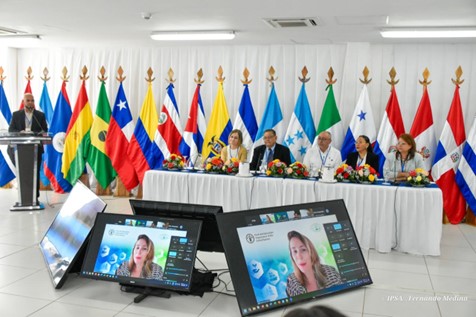
Near East and North Africa
A key message from the IPPC Regional workshop for the Near East and North Africa (NENA) region was the importance of collaboration and sharing of experiences to strengthen their plant health systems, find solutions to common plant health challenges and respond to emerging pest threats. Participants also discussed the latest IPPC drafts standards and guidelines, implementation of the standards and implementation of capacity development programmes.
The workshop was held in Rabat, the Kingdom of Morocco and was attended by 33 participants from 11 IPPC contracting parties and non-contracting parties, including Egypt, Jordan, Libya, Mauritania, Morocco, Palestine, Qatar, Saudi Arabia, Oman, Tunisia, and Yemen, as well as representatives from the CPM Bureau, the SC, IC and USDA (observers). It was co-organized by FAO’s Regional Office for the Near East and North Africa (FAORNE), the Near East Plant Protection Organization (NEPPO), FAO Morocco, the National Office of Food Safety (ONSSA) at the Ministry of Agriculture, Fisheries, Rural Development, Water and Forests, Morocco and the IPPC Secretariat.
“The NENA region exhibits diversity in climate, cropping systems, and plant health systems. However, we encounter numerous common challenges in our efforts to ensure food security, safeguard biodiversity, and promote economic growth through agricultural trade. By coordinating our regional efforts and working together through platforms like this IPPC regional workshop, we can find innovative solutions to these complex problems” said Abdelhakim ElWaer, FAO Assistant Director-General and Regional Coordinator, FAORNE.
During a one-day technical field visit to Tangier City, participants were introduced to ONSSA’s regional office and extensive work on managing the Red Palm Weevil (RPW).
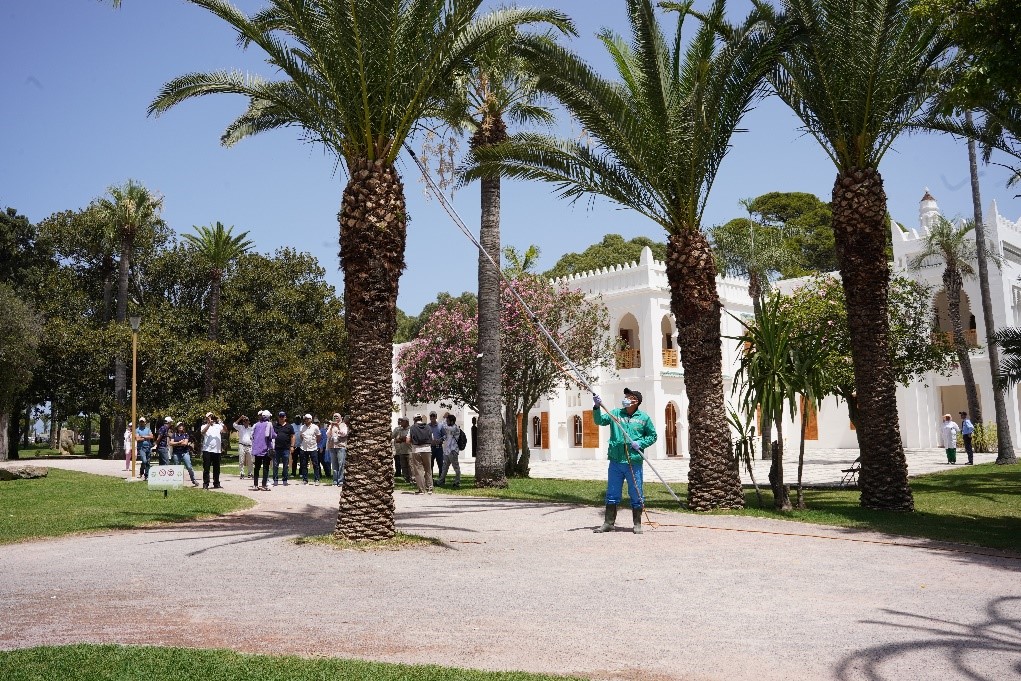
Participants watch a worker from ONSSA applies a treatment to palm trees in Tangier as part of the Red palm weevil control programme ©FAOMaroc
Southwest Pacific region
Humanitarian food assistance is crucial for saving lives and supporting communities in crisis. However, the movement of agricultural products could present phytosanitary risks, becoming a pathway for plant pests, especially in countries with weakened phytosanitary systems. To address this, the IPPC regional workshop for the Southwest Pacific discussed developing an International Standard for Phytosanitary Measures (ISPM) for the “safe provision of food and other humanitarian aid”, as the draft Specification was approved by CPM-18 (2024). The ISPM correlates with ISPM 41 “International movement of used vehicles, machinery and equipment” which identifies and categorizes the pest risk associated with the global movement of used vehicles, machinery and equipment used in agriculture, forestry, earth-moving, surface mining, waste management and by the military and outlines appropriate phytosanitary measures, to avoid pest introduction and spread.
Participants called for more advocacy on this issue and agreed to organize a side event on safe aid during the Pacific Week of Agriculture (PWA) planned for 26-30 May 2025 in Nuku'alofa, Tonga.
Other issues discussed included conducting a regional survey on the impact of climate change on biosecurity, trade, pest movement, and crop yields. Survey results could be used to develop strategies and action plans for NPPOs to support national efforts to reduce climate change's impact on plant health. Participants also discussed commodity standards and safe trade, sea containers and pest movement, and pest preparedness and response system as some of the region's priorities.
The workshop was held in Nadi, Fiji, and coincided with the 30th anniversary of the Pacific Plant Protection Organization (PPPO). Co-organized by the IPPC Secretariat and PPPO, it attracted 27 participants- including 10 women, from 15 countries and territories of the Southwest Pacific Region, and representatives from PACER Plus and PHAMA Plus (project donors).
“The regional workshop was very interactive and achieved its purpose thus continuing to keep us connected, informed and prepared. A PPPO family where no member is left behind,” said Visoni Timote, PPPO Executive Secretary.
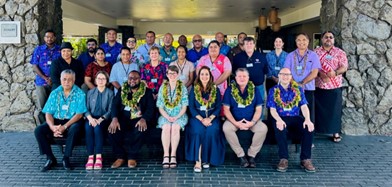
©IPPC Secretariat
Related information

